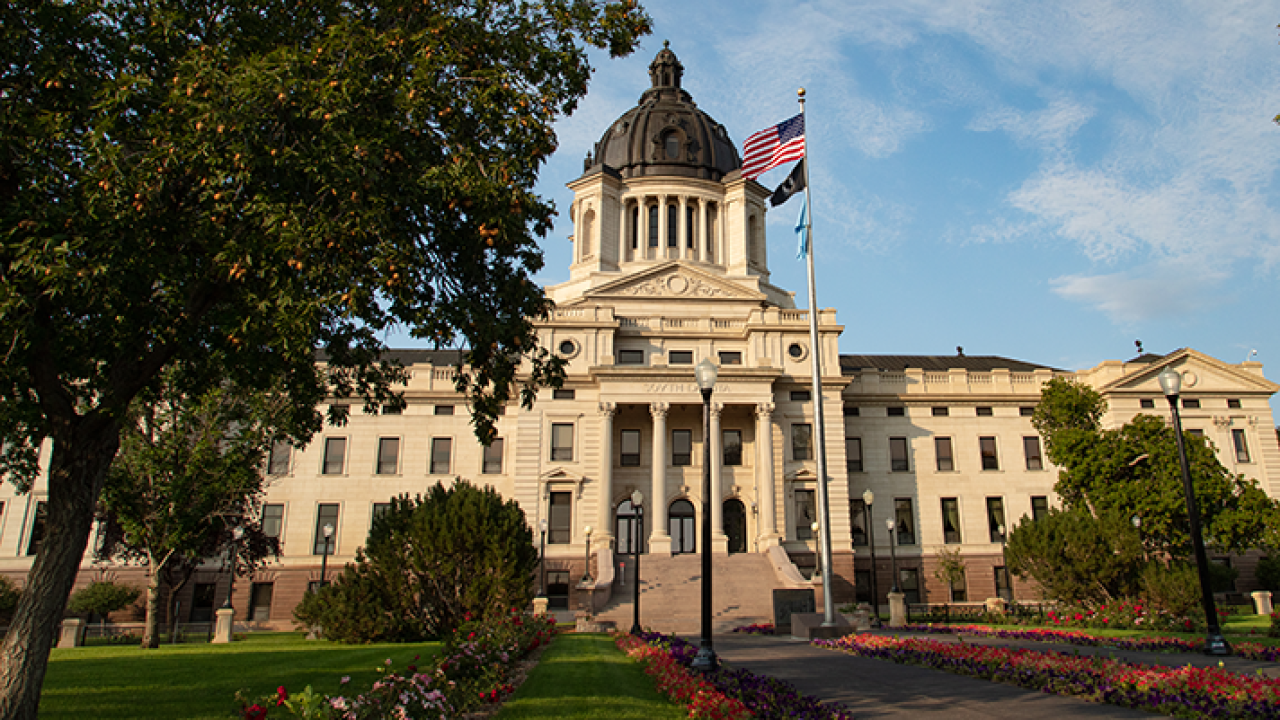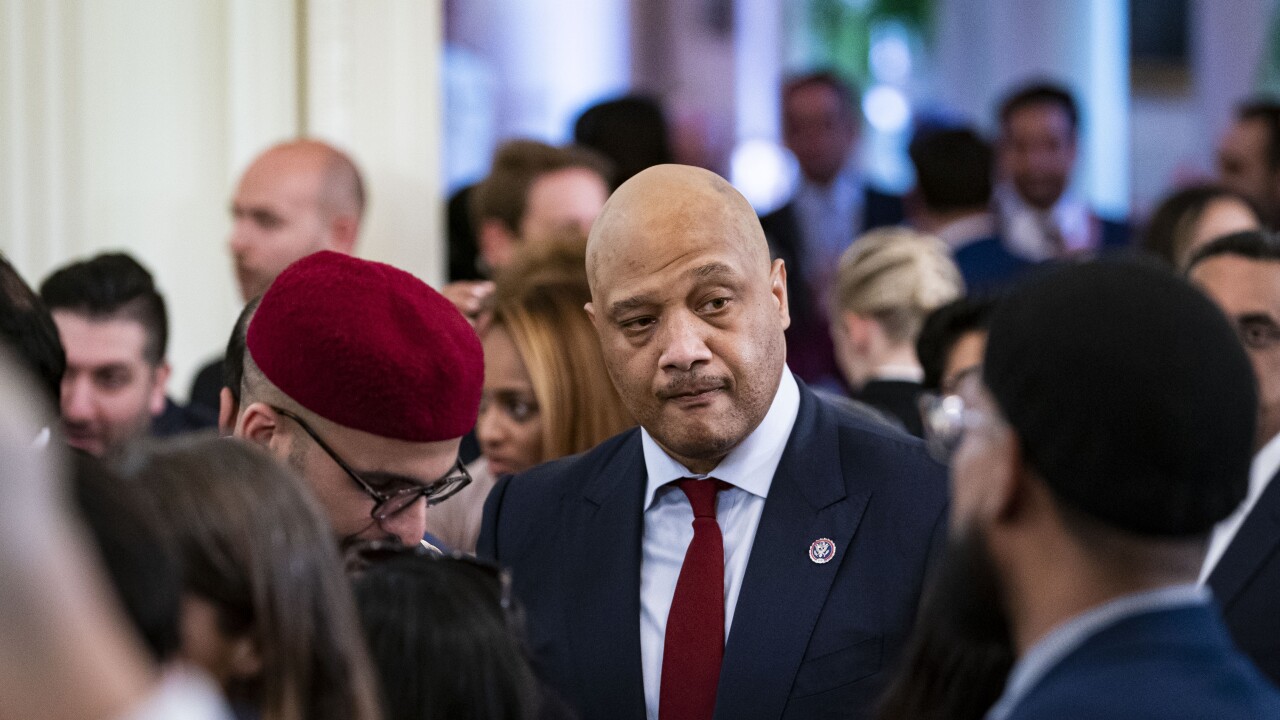
WASHINGTON — When Congress returns to Washington in September, members will have to address a number of important fiscal issues in a short amount of time.
"This is going to be even messier than normal," said Steve Bell, senior director of economic policy at the Bipartisan Policy Center.
Congress will likely have to address appropriations, surface transportation funding, the debt limit and tax extenders before the end of the calendar year. But it faces obstacles such as other national issues competing for Congressional attention, grandstanding by presidential candidates, ideologues pushing for controversial measures to be included in legislation, differing legislative stances by the House and Senate, and threats of presidential vetos.
Congressional observers said the lawmakers may initially pass short-term extensions for at least some of these items, which could be harmful to state and local governments.
The House and the Senate will next meet on Sept. 8, following the August recess. The House is slated to be in session for only about 45 more days this year, the Senate for only about 61 days. The federal government's 2016 fiscal year starts Oct. 1 and so far no appropriations bills have made it to President Obama's desk.
But before Congress gets to any of the fiscal issues it will devote its attention to the Iran nuclear deal, on which it has until Sept. 17 to vote.
Howard Gleckman, a senior fellow at the Urban Institute, said that Congress will have to punt on a lot of the fiscal issues. Iran will "take up all the energy in the Senate," he said.
If Congress votes to disapprove of the Iran deal, Obama will issue a veto, and then Congress will have to vote on whether or not to override the veto, taking up even more time.
After the Iran issue is debated and voted on, Pope Francis will address a joint session of Congress on Sept. 24.
If Congress does not pass appropriations bills or a continuing resolution to fund federal agencies and programs at current levels by Sept. 30, there will be a federal government shutdown. While Senate Majority Leader Mitch McConnell, R-Ky., has ruled out a shutdown, some experts see that as a possibility.
"I think there's a 50-50 chance of a shutdown," said Frank Shafroth, director of the Center for State and Local Government Leadership at George Mason University. There's a chance that any one Senator, particularly a Republican, could hold up a vote on a spending bill, he said. Senators can threaten to filibuster legislation, and it's hard to get the 60 votes needed to overcome a filibuster and set a time limit on debate.
"There's always a chance of a shutdown," Gleckman said, but it probably wouldn't be for very long.
Bill Daly, director of governmental affairs for the National Association of Bond Lawyers, said that while he wouldn't have thought there would be a shutdown, "now, I'm not so sure."
He pointed out that Republican presidential candidates have criticized congressional leaders and could demand certain controversial provisions be included in a CR. Even if there is a CR, the debate could get complicated. Several of the candidates have put forward plans to replace the Affordable Care Act, including Sen. Marco Rubio, R-Fla., who could push for his plan to be included in must-pass legislation this fall, Daly said.
Also, a group of conservative House Republicans is insisting that any CR include the defunding of Planned Parenthood. Bell said he doesn't see how a CR could be passed without some action on Planned Parenthood, though he doesn't think the Senate would pass legislation to defund the group.
Micah Green, co-chair of Steptoe & Johnson's government affairs & public policy group, said he doesn't think there will be a government shutdown but that Senate leaders will have to deal with the fact that Senators who are running for president could use the debate over a CR and/or the debt limit to get more attention.
Besides Rubio, Sens. Rand Paul of Kentucky, Ted Cruz of Texas and Lindsey Graham of South Carolina are seeking the Republican nomination for president. Since Congress' recess began, the presidential primary races have drawn more news coverage. The focus of coverage on the Republican side has been on businessman Donald Trump's candidacy, so other GOP candidates will try to be heard more, Green said.
"Presidential politics has the potential to impact some of the bigger legislative issues in the fall," Green said. "For example, debt ceiling and the potential for a government shutdown could become even more highly charged political issues if presidential candidates in the Senate get more involved in the debate."
Bell thinks Congress will pass a CR that lasts about 90 days. Max Behlke, manager of state-federal relations for the National Conference of State Legislatures, also predicted that a CR would expire around the end of the calendar year.
Chuck Samuels, a member of the law firm Mintz Levin Cohn Ferris Glovsky and Popeo, said he doesn't think the Planned Parenthood issue will lead to a shutdown at the end of the day. He doesn't think a shutdown will occur because it would be detrimental to the Republican Party to have one.
Sequestration
Under sequestration, defense and non-defense discretionary spending for fiscal 2016 will be subject to caps absent action by Congress. Republicans have an interest in greater defense spending, and Democrats are interested in greater non-defense spending, Gleckman said. Sequestration of discretionary spending for fiscal years 2014 and 2015 was partially rolled back in late 2013 under a budget agreement negotiated by the lawmakers who chaired the budget committees at the time -- Rep. Paul Ryan, R-Wis., and Sen. Patty Murray, D-Wash. But Ryan and Murray no longer lead the budget committees, and there is no one with their negotiating skills and credibility to reach a deal now, so any agreement to make changes to the caps would have to be brokered by House and Senate leadership, said Bell, a former staff director of the Senate Budget Committee.
Ultimately, Bell said the thinks an omnibus appropriations bill passed after a CR will be above the sequester levels. But Gleckman said he doesn't even get the sense that there's even been talk about replacing the discretionary spending caps.
Office of Management and Budget director Shaun Donovan, in a letter to leaders of the Senate Appropriations Committee chairmen earlier this month, objected to the fact that the panel's fiscal 2016 financial services appropriations bill attempts to lock in sequestration funding levels for fiscal 2016. Also objecting to the proposed underfunding for the Internal Revenue Service and Securities and Exchange Commission, he said President Obama's advisors might recommend a veto if the bill is passed as currently written.
When there was a federal government shutdown in October 2013, employees of the IRS' tax-exempt bond office didn't work. A shutdown could delay subsidy payments for issuers of direct-pay bonds with interest payments around Oct. 1, but if a shutdown is short, issuers probably wouldn't notice, Daly said.
It's a "legitimate concern" that the impasse over spending bills could hurt state and local governments, Bell said. Many programs that provide funds for states are funded on an annual basis.
From a state perspective, "a full-blown appropriations process creates more certainty" and a CR means that states have to wait to find out the final decision, said National Governors Association deputy director David Quam.
For the most part, states' legislative sessions are not taking place now, but states want Congress to take action so they can have certainty, said Behlke. Their top issue is "certainty across the board," he said.
Transportation Funding
Another major deadline looms at the end of October, when the latest short-term highway funding measure expires.
When the Senate passed the highway funding extension, it also passed a six-year surface transportation authorization measure that is fully funded for the first three years. This is the first multiyear bill in three years on which members of at least one chamber of Congress have found consensus, said Joung Lee, policy director of the American Association of State Highway and Transportation Officials.
Congress has made transportation funding a priority issue, and Lee hopes that momentum will continue. However, the House does not seem to want to pass the Senate bill. It would not be surprising to see another extension, Lee said.
The chances of a multiyear highway bill are "very remote," Gleckman said. Even within political parties, there are differing views on the length of a bill and how to fund it. Ryan, now the chairman of the House Ways and Means Committee, wants to pay for a long-term bill through international tax reform, but Senate Finance Committee chairman Orrin Hatch, R-Utah, does not want to do that.
A short-term extension of highway funding, perhaps one that doesn't expire until after the presidential election, is more likely, Gleckman said.
Susan Collet, president of H Street Capitol Strategies, said there is some motivation to accomplish a long-term bill in order to pin things down before the elections. However, "offsets are always a hot potato," so it will take a lot of political will to get a deal to stick, she said.
Shafroth said he thinks Congress will "kick the ball to December." However, an extension of highway funding could be longer than that, since McConnell wants to avoid hard votes with a year of an election.
The stalemate over highway funding makes it hard for state and local governments to issue bonds for transportation projects, since they won't know how much money they will get from the federal government. Counting on the federal government is a "real risky proposition," Shafroth said.
"Governors need a long-term bill," Quam said. "Long-term certainty creates momentum" and allows states to engage in long-term planning, while short-term extensions do little other than allow projects to continue, he said.
Debt Limit
Congress will also likely have to address the debt limit this fall. The United States hit the debt limit in March, and since then the Treasury Department has been taking "extraordinary measures" to continue to pay for the federal government's obligations. One of those measures has been the suspension of sales of state and local government series securities, which municipal bond issuers purchase for advance refunding escrows to avoid violating arbitrage rebate or yield restriction requirements.
Treasury Secretary Jack Lew said in a letter to Congress late last month that Treasury does not think the extraordinary measures will be exhausted before late October, and it is likely they could continue to be used for a short period of time after that. The Bipartisan Policy Center estimates that Treasury will be able to use extraordinary measures and cash on hand to meet all of its obligations until November or December. Congress will need to raise or suspend the debt limit in order to avoid a default.
Green said that no one likes voting for raising or suspending the debt limit, but it has to be done. However, the necessity of voting to raise or suspend the debt limit doesn't mean that the debt limit won't be the focal point of debate.
Gleckman thinks that McConnell will have to have a deal with Senate Democrats to raise or suspend the debt limit, since not enough Republicans will support it.
If the United States comes close to defaulting on its obligations, there will be a lot of volatility in the market for Treasuries, especially with short-term obligations, Daly said.
Tax Extenders
Another big ticket item on Congress' to-do list is to address expired tax provisions known as "tax extenders." The provisions expired at the end of 2014 and were extended retroactively for that year. Some of them relate to bonds, state and local taxes and Puerto Rico.
So far this year, the House has voted to make permanent several of the extenders, including the state and local sales tax deduction. Meanwhile, the Senate Finance Committee has passed a bill that would extend the extenders for two years through the end of 2016.
"The House and the Senate are pretty far on approach at this point," Collet said.
With many Senate Finance Committee members up for re-election in 2016 and Ryan seeking an accomplishment in his first year as chairman of the Ways and Means Committee, there is a desire for some kind of a deal. However, members of the tax-writing committees would not want a deal on extenders to hurt tax reform, Collet said.
Regardless, Collet thinks an agreement on extenders can be reached sooner in the year this year than was the case last year. Samuels said some of the extenders could be made permanent while others could not even be extended.
In the end, it's possible that if there's a continuing resolution, appropriations for the remainder of fiscal 2016, extenders, highway funding and the debt limit could all be addressed in one big bill, said NCSL's Behlke.
Samuels expects there will be a "megabill," and he said he worries that provisions could be added to this type of legislation at the last minute that hurt munis.





